How does Vehicle Negative Equity Affect your Lemon Law Settlement?

Vehicle Dealership Collision Fraud
April 11, 2021
What Happens to the Expensive Alarm System I Installed in My Vehicle when the Vehicle Manufacturer Repurchases my Lemon?
June 10, 2021The story may go something like this: the consumer is happy to receive a lemon law settlement from the vehicle manufacturer. The consumer looks at the settlement agreement, and to the consumer’s dismay, the consumer does not get a reimbursement from the vehicle manufacturer, or worse, the consumer owes to his or her financial company money for a vehicle the consumer won’t have if the consumer settles his or her lemon law case with the vehicle manufacturer. What happened? The consumer then looks at the settlement agreement in detail and notices a deduction for “negative equity.” What is this negative equity the consumer asks him or herself. If the consumer hired an attorney to handle his or her lemon law matter, the consumer then asks the attorney what happened? The vehicle manufacturer has deducted from the lemon law settlement agreement the vehicle’s “negative equity to the consumer’s dismay.”
What is a Vehicle’s Negative Equity?
A vehicle’s negative equity is a dollar amount the consumer’s vehicle is “underwater” or “in the red” at the time of the vehicle lemon law settlement with the vehicle manufacturer. How can the vehicle be underwater? Generally, the vehicle can be in the red or underwater when the consumer trades in a vehicle for which the consumer owes more money to the vehicle lienholder, generally a bank, than what the vehicle is worth in the marketplace. For example, let us say that the consumer’s vehicle traded in for the lemon is worth $10,000.00 in the marketplace; however, the outstanding balance to the bank is $15,000.00. The consumer is in the red to the tune of $5,000.00. This the amount the consumer in this example would have to come up with to settle the lemon law claim with the vehicle manufacturer. This is a problem.
What Does the Law Say?
The Song Beverly Consumer Warranty Act (The Act) is silent about a vehicle’s negative equity. The Act tells us that the vehicle manufacturer “In the case of restitution, the manufacturer shall make restitution in an amount equal to the actual price paid or payable by the buyer, including any charges for transportation and manufacturer-installed options, but excluding nonmanufacturer items installed by a dealer or the buyer, and including any collateral charges such as sales or use tax, license fees, registration fees, and other official fees, plus any incidental damages to which the buyer is entitled under Section 1794, including, but not limited to, reasonable repair, towing, and rental car costs actually incurred by the buyer.” The Act 1793.2
There are, however, other rules and regulations that may or may not be binding on the vehicle manufacturer regarding a vehicle’s negative equity as it pertains to a lemon law claim. One of them is in the California Department of Consumer Affairs, concerning arbitrations of lemon law claims when “the arbitrator decision awards you a replacement or refund of your vehicle, the manufacturer is prohibited from deducting for negative equity. Negative equity is not an allowable deduction in State-certified arbitration programs. When an award is made, it is the responsibility of both the State-certified arbitration program and the manufacturer to ensure the consumer is made whole.”
CA Civil Code 2982 (a) (6) and 2985.8 (c) (4) similarly require CA dealerships to disclose negative equity in their transactions with consumers. But what about California lemon law settlements with vehicle manufacturers? Enter Gonzalez v. Ford Motor Co., No. LA CV 19-00652 PA. In that case, the District Court held that a “Plaintiff [is] not entitled to a reimbursement of his negative equity . .” And that “Customers should know that the return of a lemon to the manufacturer may result in the return to the customer of any debt owed on a trade-in vehicle that exceeds its value.” And that “To require [The vehicle manufacturer] to pay an additional [amount] to Plaintiff would place Plaintiff in a better position than he was at the time he entered into a [vehicle purchase contract].” Id.
So, where does this leave the consumer? The vehicle manufacturer will argue and will cite the court case above to refuse to reimburse the consumer negative equity in a lemon law settlement. If the consumer is lucky, the consumer hired a competent California lemon law attorney to handle the consumer’s lemon law matter and addressed the consumer regarding the vehicle’s negative issue upfront. Luis Aguirre, a California Lemon Law attorney, has successfully argued and succeeded in having the vehicle manufacturer reimburse the consumer’s vehicle negative equity. Contact Luis Aguirre today.
Learn more about Luis Aguirre Law by visiting our other brand profiles: Facebook, Twitter, Yelp, and Google Maps.
Luis Aguirre California Lemon Law Attorney 26060 Acero Suite 111
Mission Viejo, CA 92691 Telephone: 949.342.6199.
Contact us Today
The information on this posting is for general information and/or educational purposes only and should not be construed as legal advice or a guarantee on the outcome of a particular case. This publication may contain dramatization. This posting is intended for California consumers only. This posting is considered advertisement by Luis Aguirre Law, who is also responsible for its content. Viewing, reading, or receiving the information on this posting does not create an attorney-client relationship. We are not your attorneys until you sign a written contract with Luis Aguirre Law, and the contract is fully executed (signed by attorney). Although information on this posting is deemed accurate, information on this posting should not be acted or relied upon without first conducting an independent investigation and/or obtaining qualified legal counsel, or you do so at your own risk. Attorney is licensed in the state of California only. Attorney Luis Aguirre is bilingual and also speaks Spanish and will provide help in Spanish if you request it. Although attorney limits his practice to the particular field of breach of contract – lemon law, attorney is not a certified specialist in this particular field or any other field of law. See “Our Policies” tab for further details regarding our Privacy Policy, Disclaimer, and Attorney’s Fees.




